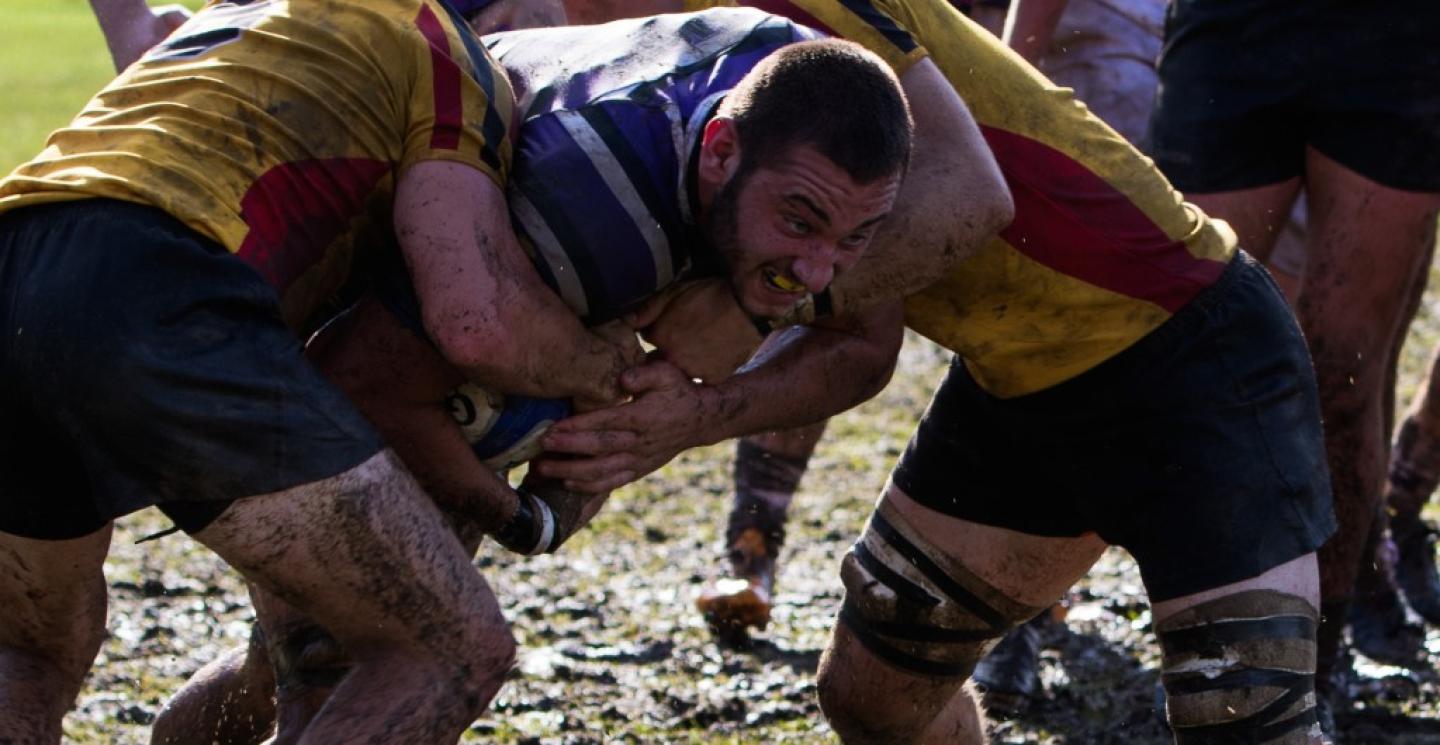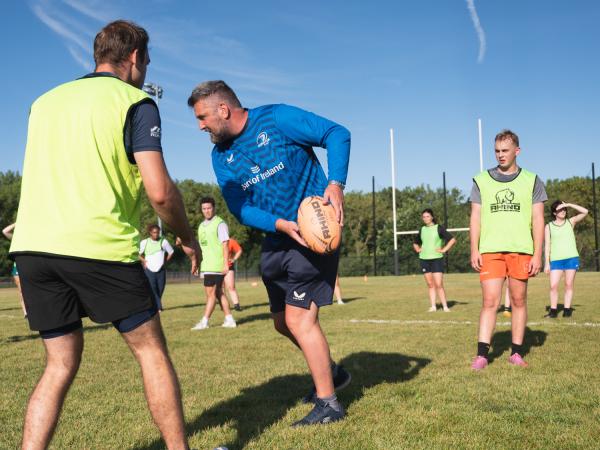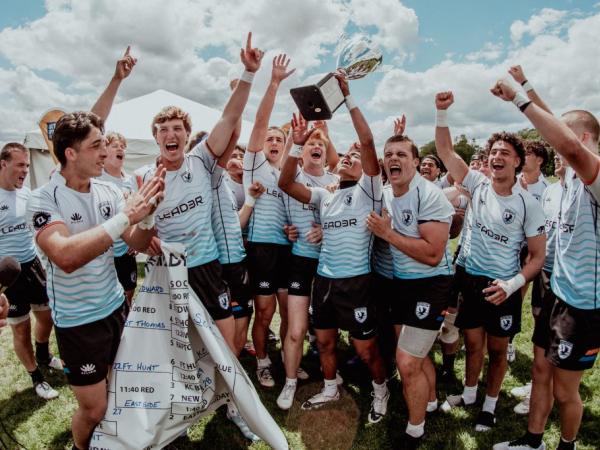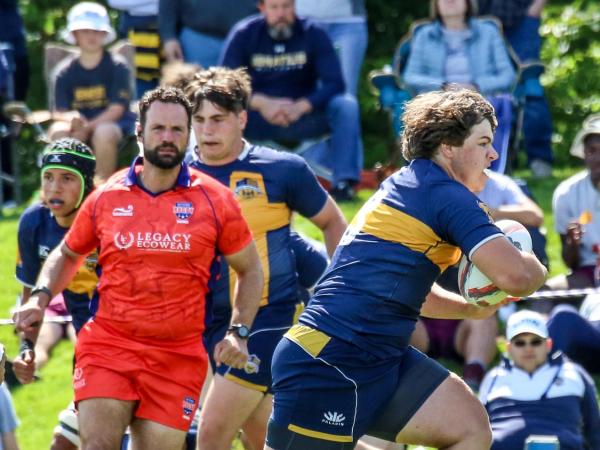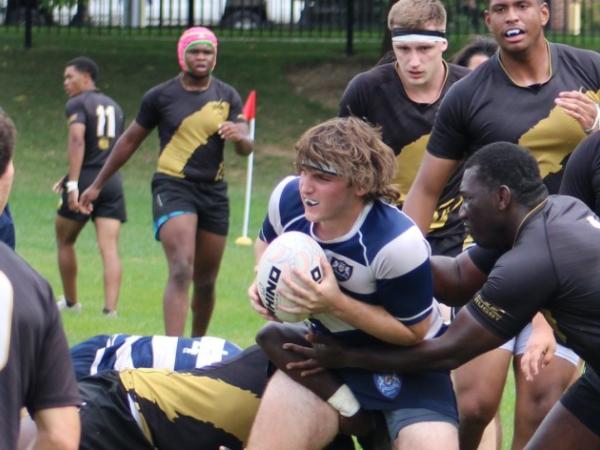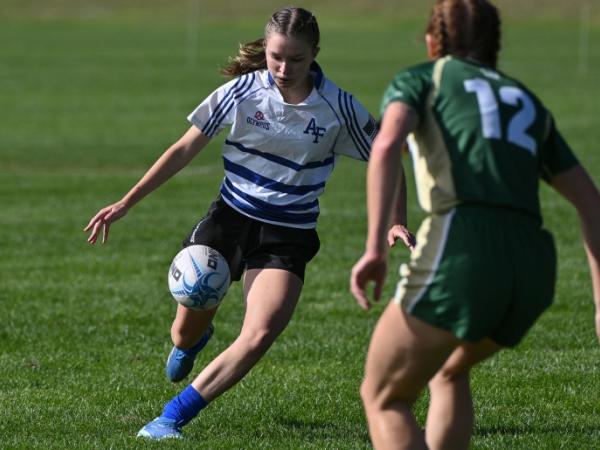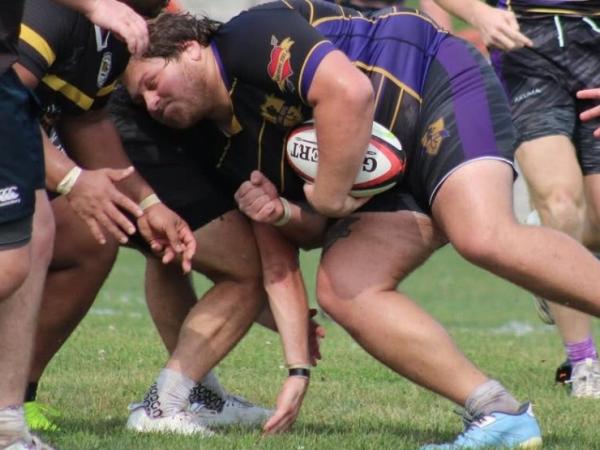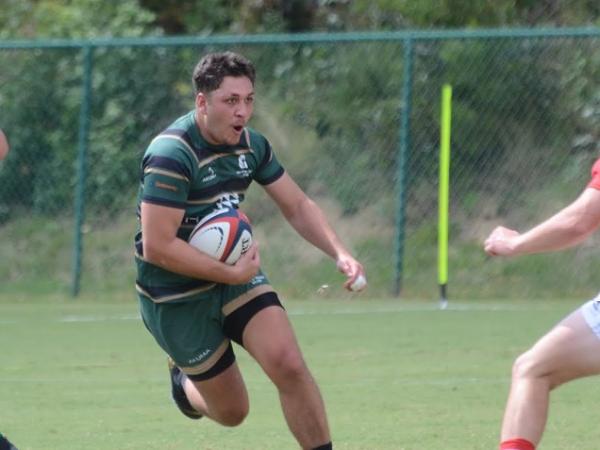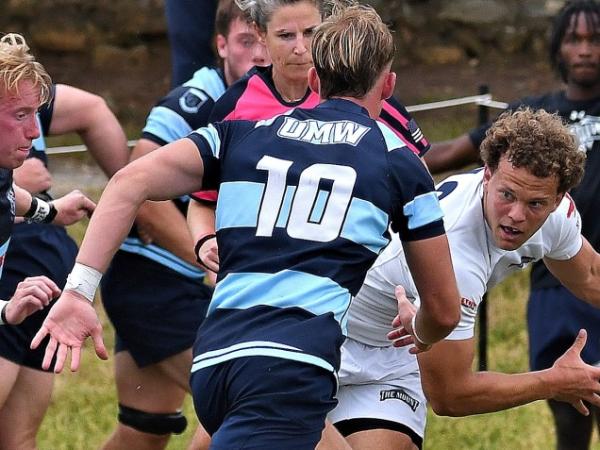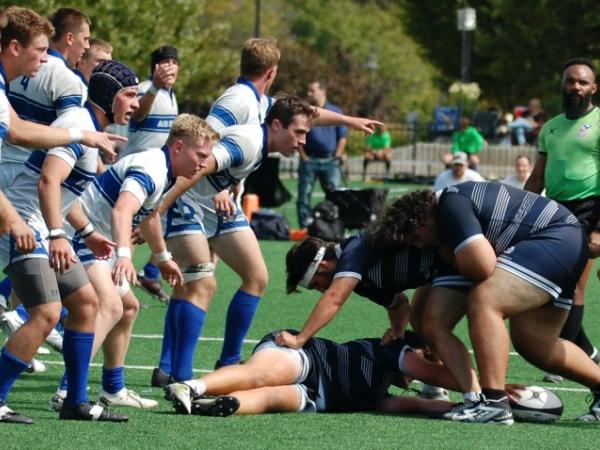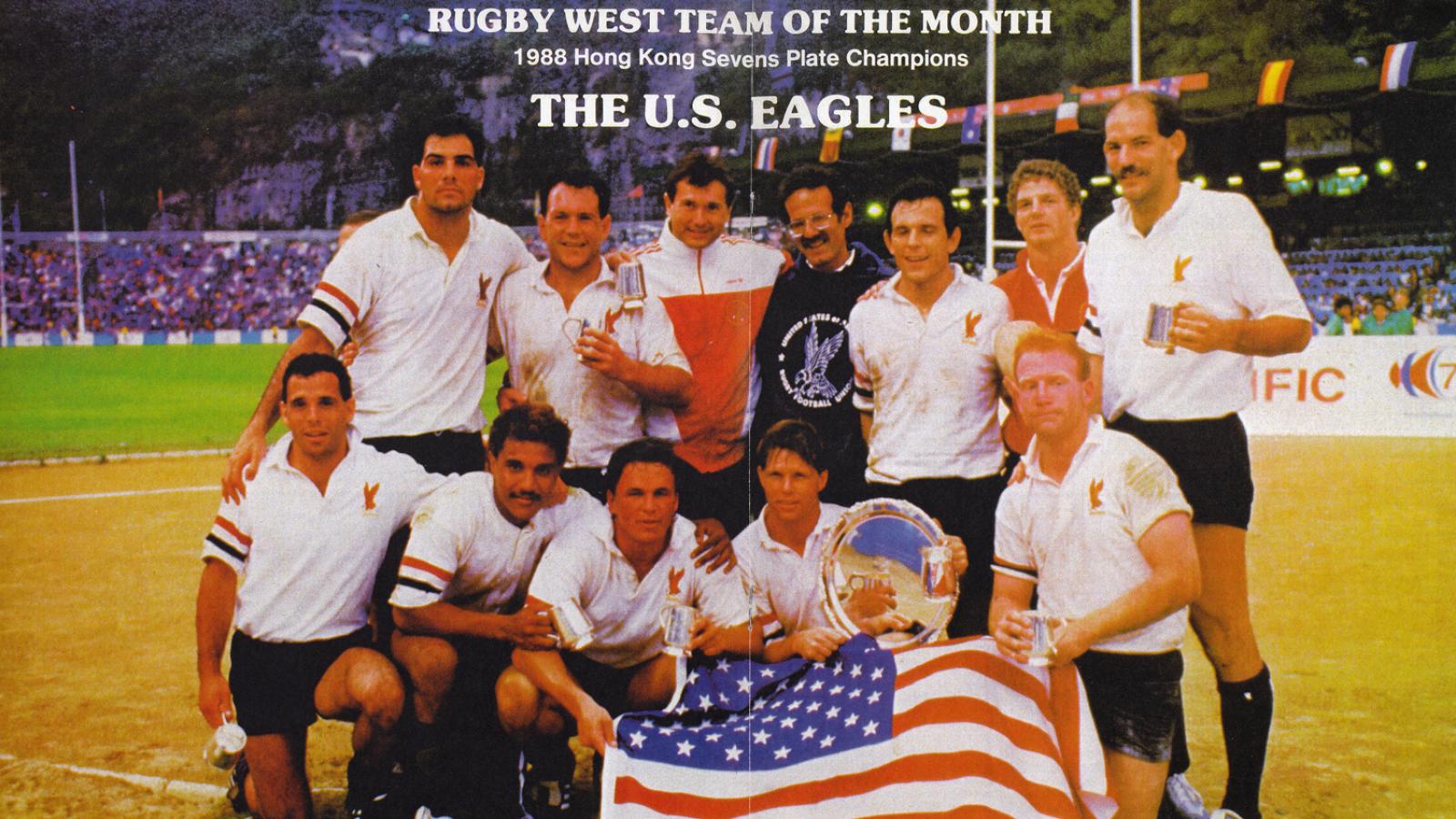Gonzaga is the first single-school team to win three straight national championships, holding off Jesuit of Sacramento Saturday in a single-school final that could not have been closer.
The game was the final game played at the Rugby Athletic Center, which saw virtually all of its grass rubbed away after torrential rains and 17 previous games on the main field.
The conditions almost guaranteed a low-scoring game, and indeed it was. Jesuit entered the game determined to play a more wide open game, but also, as they had the day before, decided to put Christian Dyer, usually an outside center, in at flyhalf to get him more touches and to take advantage of his kicking.
It all seemed to go as Jesuit planned, as they were strong in contact, played for territory, and earned two kickable penalties that Luke Thayer put over the bar.
Down 6-0, Gonzaga knew they had lost some scoring opportunities.
“We just kept our heads up,” said senior lock Patrick Hesse. “We know they are a good team. We respect the hell out of them. We knew we needed to just get to work or we’d get our heads out of the game. We needed to keep our heads up.”
In the second half, Gonzaga did exactly what they needed to do. They worked it up the middle, forced a penalty, and from there, Patrick Sheehy kicked to touch to set up a lineout.
It was all so clear - maul it and score, only Jesuit held the maul, and it wasn’t until the Gonzaga Eagles worked through a couple of phases that John Jorden powered over for the try. Sheehy converted, and Gonzaga led 7-6.
The rest of the game was a torrid series of Jesuit’s attempts to run it out of their half, and Gonzaga’s desperate defensive work.
“They defended with so much heart,” said Gonzaga Head Coach Peter Baggetta. “In the end it was just guts and heart.”
Jesuit got into Gonzaga’s 22 on multiple occasions, but the occasion, perhaps, undid some of the attacks. With Gonzaga coming up quickly with LJ Koi-Larbi and Ian Kilcullen in the midfield, they forced Jesuit to lose the ball in contact.
Jesuit matched Gonzaga fairly well in the contact area, despite Gonzaga’s size, but it was the collisions with the ballcarrier that caused problems.
 |  |
 |  |
And so we come to the end of the game. With no time left, Jesuit had to work their way out from just five meters in front of their line. This they did, running the likes of Dyer and fullback George Niethammer as well as the forwards such as Bailey Abercrombie. Gonzaga defended, and their defense bent, but bent slowly. A penalty, and then a free kick, and then Jesuit was in the Gonzaga half with one more shot. Dyer kicked for the corner and the chase was on. Gonzaga wing Micaiah Paige raced back to slide onto the ball just before the Gonzaga tryline. The Jesuit chasers were there, but Paige held onto the ball and prevented a try. He also committed a penalty, as he was pinged for not releasing.
That play by Paige certainly prevented a Jesuit try, but the Marauders still had a chance. They tapped once more, were stymied at the tryline three times, and then spun it wide. Niethammer had Conrad Hawkins on his left and possibly enough space to score, but the pass from Neithammer to Jonathan Amadi didn’t quite connect, and the game was over.
It was a heartbreaking end for Jesuit, who most certainly had their chances, but it was also a thrilling win for Gonzaga.
“Jesuit was pressuring us the entire game,” said Hesse. “We never felt we had any momentum. They were tackling us low and cutting us down, and that’s down to their heart and their coaching. But we just needed to keep playing our game. We played like 23 games this year - we practice and prepare for this kind of game situation.”
Hesse, who is normally a back-rower, was put into the second row in part because Gonzaga felt they could scrum with him there. He combined with Will Like, Joey Freeman, and Bailey Ogilvie in a back row that matched up in a fascinating battle with Sam Collins, Theyer and Abercrombie from Jesuit.
“We knew they had a great eightman, but if we were strong and if we were fast and made tackles, the game was basically ours,” said Like, who is a sophomore. “We just went to work.”





